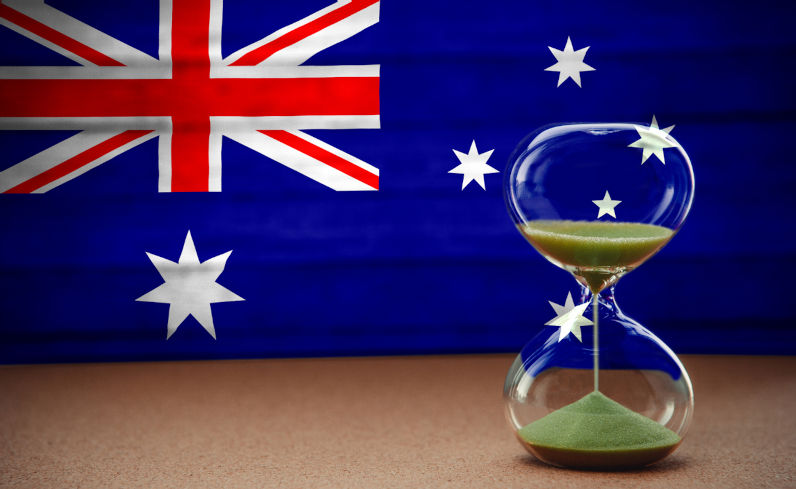Hurry up and wait
March 27, 2025
One principle of American military affairs has been said since the 1940s to be “hurry up and wait”. That certainly applies to AUKUS, an agreement so urgent that in September 2021 Prime Minister Scott Morrison gave Opposition Leader Anthony Albanese only 24 hours to agree to it.
Yet we will wait for decades for the centrepiece of AUKUS, US nuclear-powered submarines, ever to arrive in Australia. They are unlikely to contribute anything to the defence of Australia and will add at least $368 billion to our national debt over 30 years. Their aggressive purpose will provoke China and could set off an arms race in our region.
Public scepticism about AUKUS grew in 2021 when the public heard about an agreement for total US control of intellectual property for naval nuclear propulsion (ENNPIA) and another agreement for exchange of nuclear information in 2022. We were told little of what they were about, apart from the estimated cost of the submarines.
Then a new agreement replaced ENNPIA in 2024, on the transfer of nuclear material and equipment. This will be in force until 2075, but the US or UK can postpone or cancel it at a year’s notice, which Australia cannot. It also contains secret political commitments of which most MPs, Senators, and the Australian public know nothing.
Later in 2024, legislation for “nuclear safety” was rushed through Parliament, again without proper explanation of what that meant.
We hurry up for AUKUS, but will wait for decades for the results. This is obvious to many Australians. Growing public opposition to AUKUS has been identified by civil society groups including the Lowy Institute, The Australia Institute, and Australians for War Powers Reform (AWPR). Even The Australian’s Greg Sheridan objects to it, while saying we need to spend more on “defence”.
In a detailed report on AUKUS, ‘Transparency, Accountability, Sovereignty’, AWPR challenges ministers to respond. The full AUKUS report is HERE. AWPR says the agreement raises many questions to which Australians deserve answers. Here are just a few of them.
- The purpose of AUKUS
What is the exact military role that is planned for the AUKUS nuclear-powered submarines? In which US missions are they designed to take part?
- The strategic need for AUKUS, and other options
What research underpinned the 2024 National Defence Strategy and supported an AUKUS-style huge military build-up as the best way to promote peace in the region?
What studies examined other options (military and non-military) for promoting peace in the region?
- The full economic costs of AUKUS
In addition to the announced cost of $368 billion for AUKUS Pillar 1 (the nuclear-powered submarines, the cost of which will almost certainly rise), what is the expected cost of AUKUS Pillar 2 (a “platform for trilateral and multilateral collaboration on emerging technologies, such as undersea, quantum, AI and cyber capabilities”)?
- Sovereignty of military command
Will Australian military officers be in command of the bases, ships and aircraft funded by Australian taxpayers, and will the Australian Government determine the missions for our ships and aircraft?
- Sovereignty over warfare conducted from Australia
The US is installing Tomahawk missiles and B-52 bombers in northern Australia. Before they are launched from Australian territory, what consultation with the Parliament is required?
As well as HMAS Stirling, Darwin, Tindal, Scherger, Pine Gap and other bases to which the US has access, what other bases will be needed as “spares” if those are taken out in a war? Where are they?
- The undisclosed political commitments
What are the undisclosed “political commitments” made between the AUKUS partners in August 2024?
- War over Taiwan
Has Australia given the US any commitment about our involvement in a future war between the US and China over Taiwan?
- Impacts on regional relationships
Did the government receive any research or advice regarding the likely impacts of AUKUS on our relationships with Pacific neighbours, particularly in relation to the Treaty of Rarotonga? If so, what was it?
- Impacts on nuclear weapons risks
What research and advice did the government receive on the likely impact of AUKUS on nuclear weapons proliferation risks, and on the risks of a nuclear weapons attack on Australia?
- Liability and compensation for a nuclear accident
In the event of an accident involving possible release of radioactivity related to a UK or US nuclear submarine in Australian waters, which nation would be held financially liable for any clean-up, and what compensation arrangements would apply?
- Nuclear waste
How will the site for disposal of AUKUS intermediate and high-level waste be chosen, and which agencies will be involved in that process? What is the expected total cost of the nuclear waste disposal, including for permanent security arrangements for the high-level waste? Are these costs additional to the announced cost of the submarines themselves?
Will Australia comply with our obligations under the UN Declaration on the Rights of Indigenous Peoples regarding the need for free, prior and informed consent? If so, by what process will such consent be sought?
- Terms of withdrawal
The US and UK can withdraw from the AUKUS agreement on their own terms. What matching provision applies to Australia?
What would it cost for Australia to cancel AUKUS?
- AUKUS and President Trump
Are there any circumstances in which the destabilising and anti-democratic actions of US President Donald Trump would be of sufficient concern to prompt a reconsideration of AUKUS by the Australian Government?


